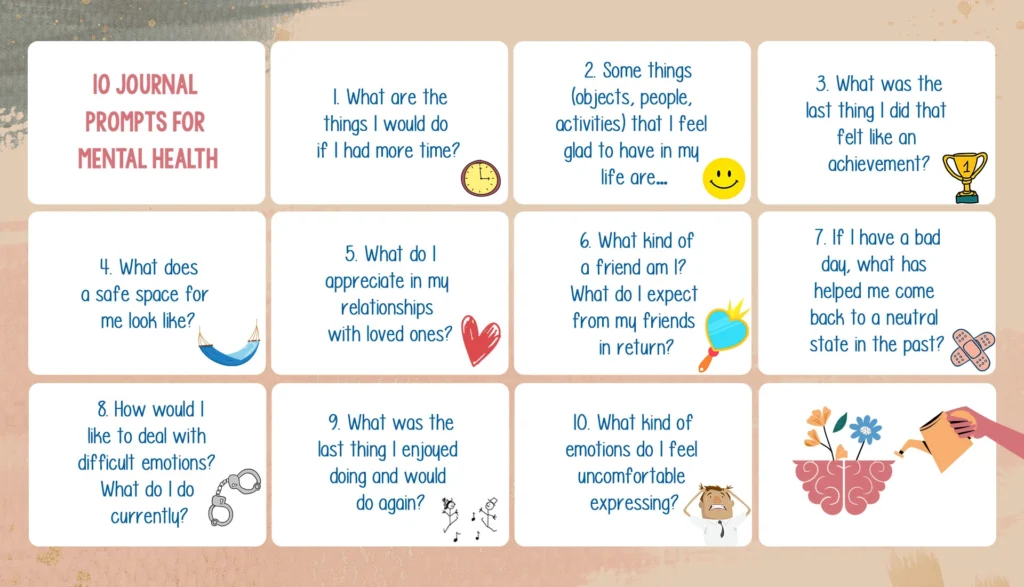Do you look longingly at Pinterest images of aesthetically pleasing bullet journals? Have you encountered journal prompts on Instagram and wondered whether you should try them out? Or do you think journaling is a fad that will run its course? We’re here to tell you that journaling isn’t just a trend–it works wonders for your mental health! Read on to learn more about journaling and how it helps.
What is journaling?
Journaling is a bit like diary writing. It is the practice of writing about your thoughts, feelings, or events in your life. People commonly misinterpret journaling only to be about pretty handwriting and fancy stationery. The process of journaling can be enhanced by these elements, but journals can take any form. It can be handwritten, typed on a laptop or a mobile, or even in the form of doodles or drawings. In journaling, the process matters more than the product. When you sit down, give yourself time, and try to be as open and honest as possible, you truly engage yourself in the journaling process.
The benefits of journaling
During the process of journaling, you unlock its many benefits. Let’s find out what they are:
- A safe space: Imagine sitting with your best friend and venting about the day’s events. Your journal is that best friend, but without any interruptions. A journal provides a safe space to express yourself, barring the need to downplay your feelings or censor yourself as you might with a real person.
- A quiet space: In the social media era, are you really living if you aren’t posting about your life all the time? People often instantly share their thoughts on various platforms before they are fully formed. A journal gives you a quiet space to explore your thoughts and make sense of it all.
- A record of the good: While your journal can be used to work out your anxiety or negative emotions, it can also be used to record positive moments. Documenting events where you felt valued, thankful, and cheerful could help you combat negative self-talk. Additionally, you can return to older journal entries to reflect on these happy moments.
Your turn!
Though journaling has all these benefits, it still might not be a good fit for everyone. But you can never know unless you try it out! You can begin by integrating it into your daily routine for a couple of weeks. It doesn’t matter whether you journal first thing in the morning or at night—there are no rules. You just need to be as honest as possible with whatever you write.
If you’re stuck and unable to find a theme to write about, you can always use journal prompts. There are a plethora of prompts available online. Here are some prompts you could use:

So, what’s stopping you? Try journaling for 2-3 weeks until you’ve found a routine and format that suits you. More often than not, this process will help you think clearly, realise what calms you down, and understand your anxiety and anger.


